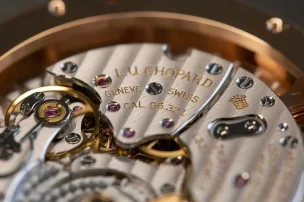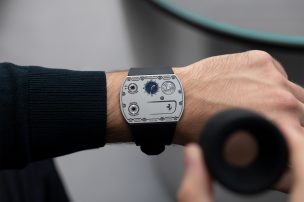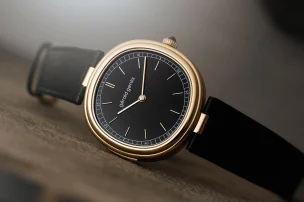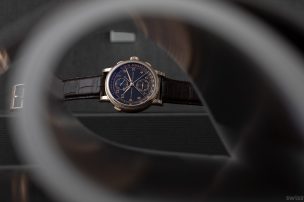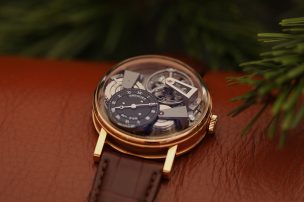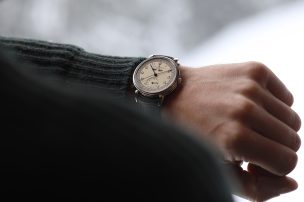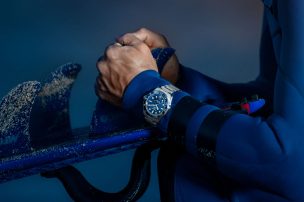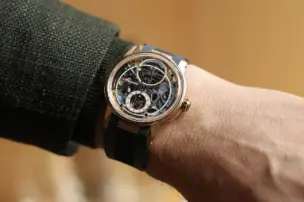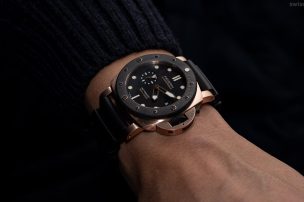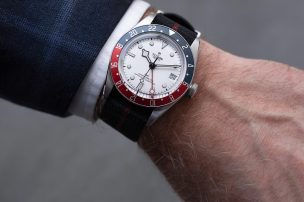
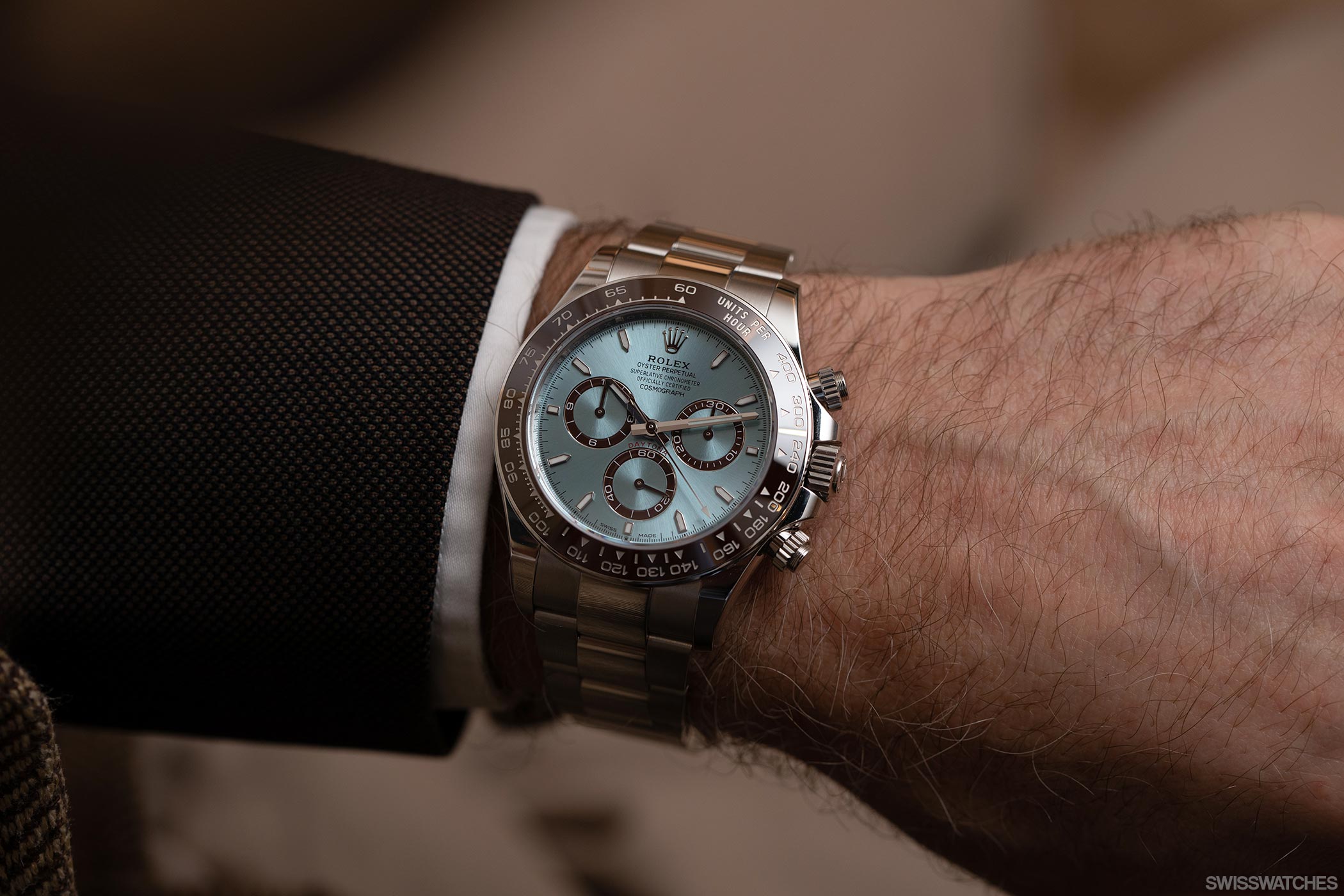
Watches & Wonders 2023: Rolex Highlights
Rolex’s legendary Daytona celebrates its 60th anniversary this year. As a result, our anticipation was particularly high in the run-up to what the horology house would come up with to mark this important birthday. Now the secret is out. Rolex has fundamentally revised the model line, both visually and technically. Other highlights include the new GMT-Master II in yellow gold and with Jubilee bracelet, the new Yacht-Master 42 in titanium (to the delight of our columnists), and an ultra-chic new dress watch (to the delight of this author).
Cosmograph Daytona
There’s no need to explain the history of the Daytona in detail. The Daytona was introduced in 1963 on the occasion of the eponymous car race ‘Daytona International Speedway’, and was distinguished by its bezel with tachymeter scale. Sixty years later, it is a style-defining piece for the horology house, and the five new models just unveiled at Watches & Wonders 2023 also feature the unmistakable Daytona design codes. But there are some subtle updates to the existing models – and two real surprises.
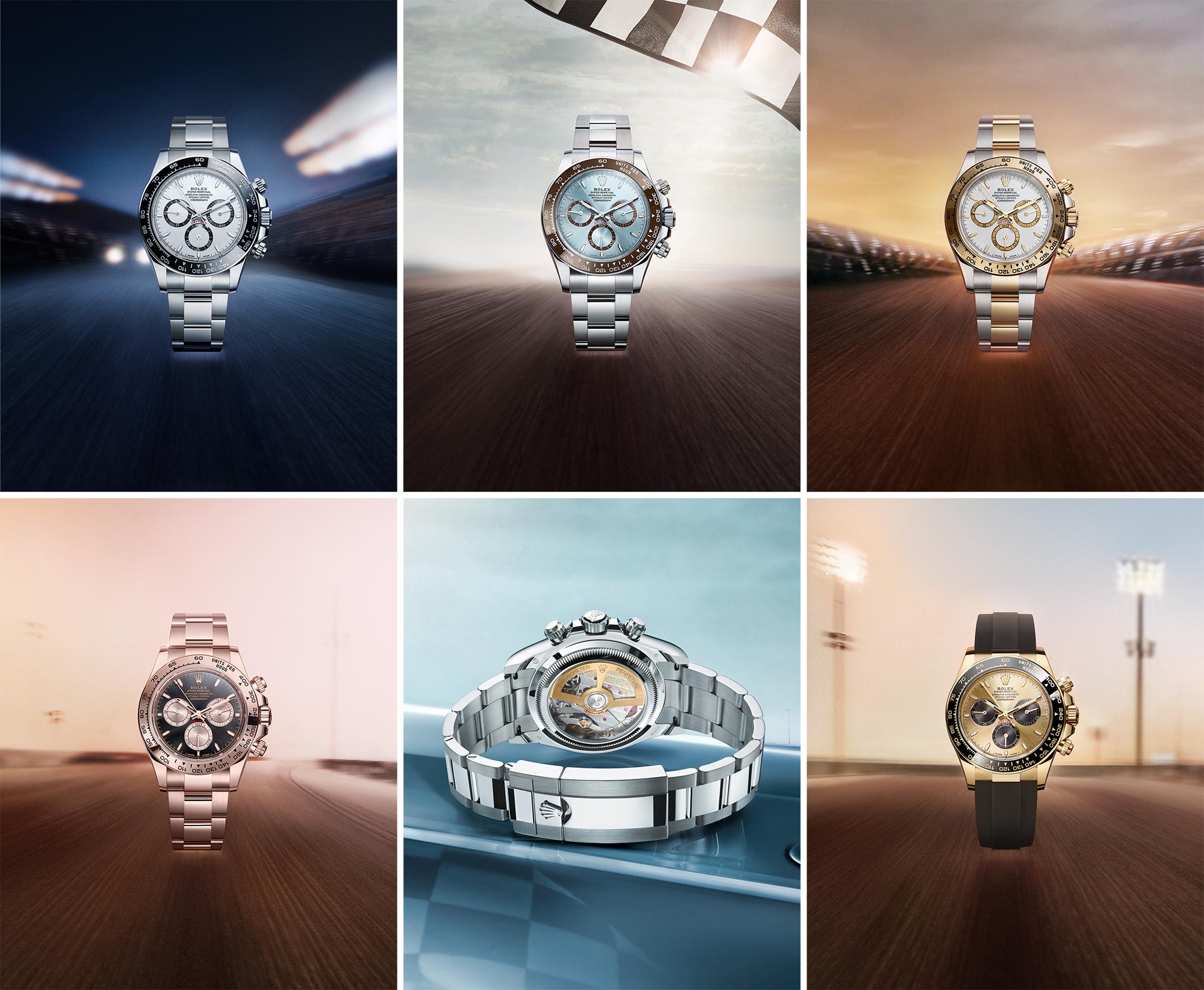
Credit © Rolex/Alain Costa
The dial design has been slightly revised. The contrast between the background and the subdial counters, or their outer rings, is emphasised by highlighting colour accents. The lugs and case sides are highly polished, so that the light reflections bring out the case shape more intensely. The Cerachrom bezels now have a thin band that is made of the same material as the central part of the case. If the latter is made of steel, the thin band is also made of steel. If it is gold, the thin band is made of gold. The new Cosmograph Daytona in platinum 950 with ice blue dial has a Cerachrom monobloc bezel made of chestnut-brown ceramic. In the stainless-steel version with a white lacquered dial and the yellow gold version with a gold dial, the Cerachrom bezel is made of black ceramic. The case still measures 40 mm.
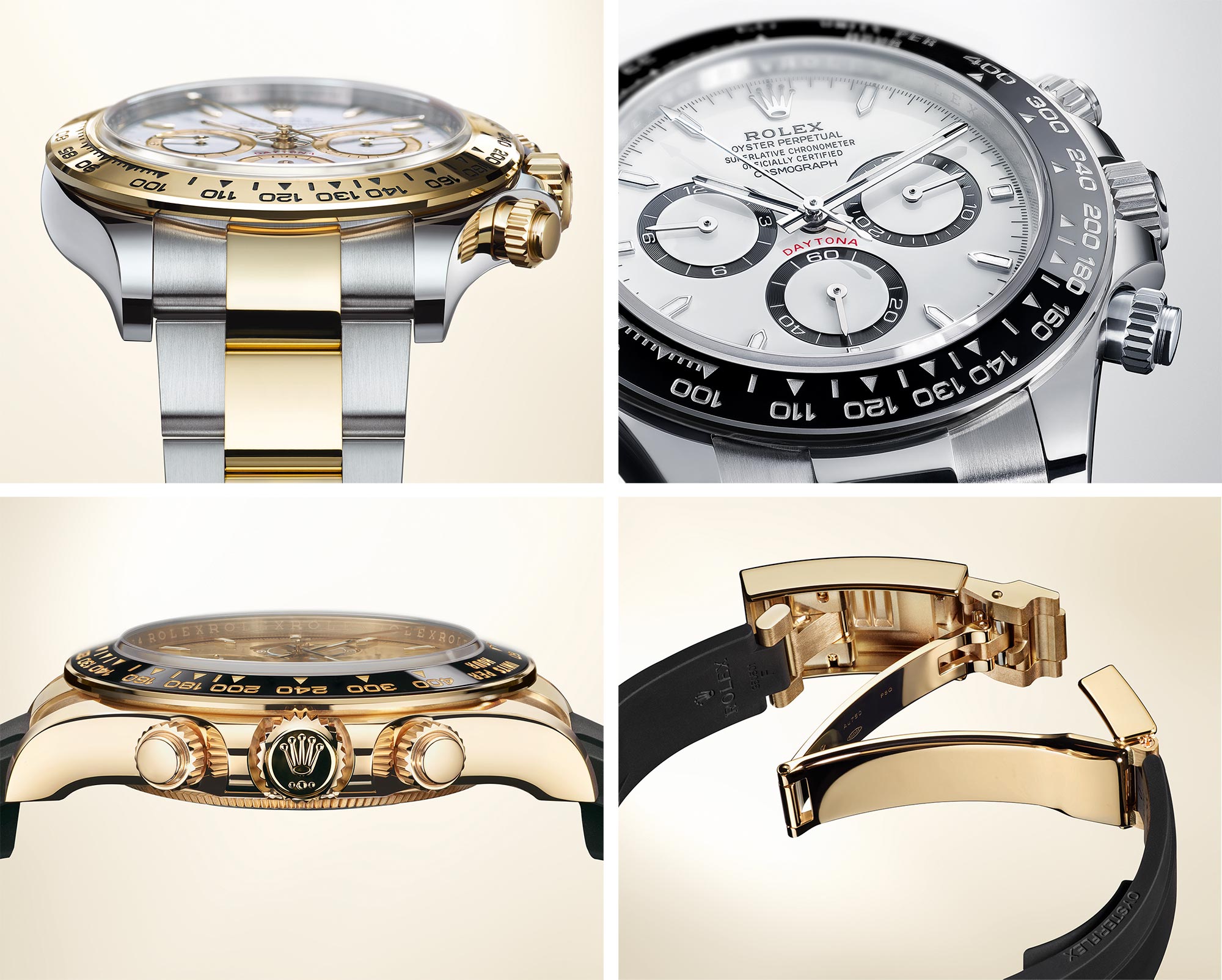
Credit © Rolex/Alain Costa
A new movement
The first surprise: after more than 20 years, Rolex presents a new movement for the Daytona. The 4131 calibre has been improved in terms of precision, power reserve, usability and reliability. The number of components has been reduced compared to the previous calibre 4130. The bridges of the new calibre 4131 are decorated with Rolex Côtes de Genève for the first time. It differs from the usual Côtes de Genève decoration in that it has a fine, polished groove between the individual stripes. Of course, the new movement still features a Chronergy escapement and Rolex’s blue Parachrom hairspring. However, even more material has been removed from the cut-out oscillating weight and the mechanism is equipped with an optimized ball bearing. The new ‘perpetual rotor’ winding system allows the new Daytona timepieces to achieve a power reserve of 72 hours.
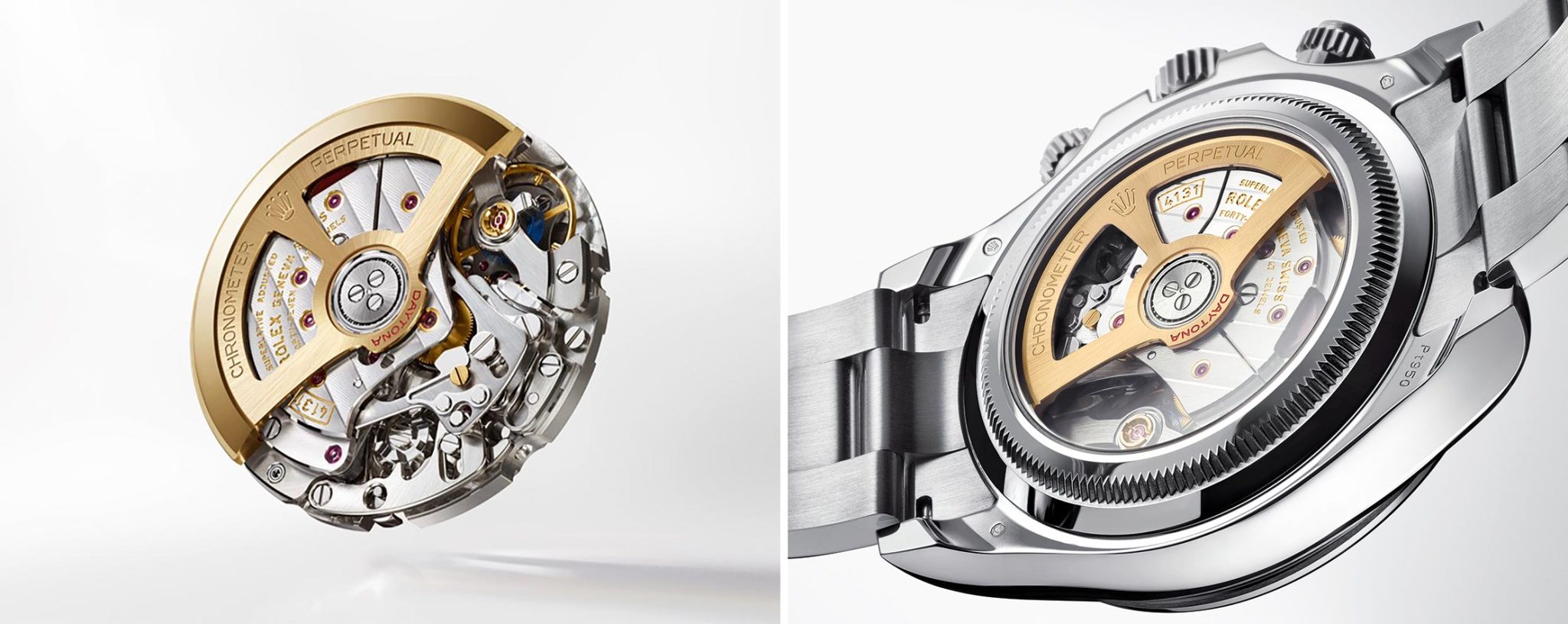
Credit © Rolex/Alain Costa
The other surprise is that Rolex has installed an open caseback for the first time in 93 years. And for the Daytona, it’s a first anyway. The new platinum Daytona now shows the newly decorated calibre 4131 through the transparent sapphire crystal caseback. Prices upon request.
GMT-Master II
Last year, Rolex caused a stir with the GMT-Master II with its left-handed crown. This year, the Geneva watchmakers are going one better. The GMT-Master II now comes in Rolesor yellow and 18-carat yellow gold with a Cerachrom numerals disc in grey and black ceramic. The GMT-Master II also now features a Jubilee bracelet.
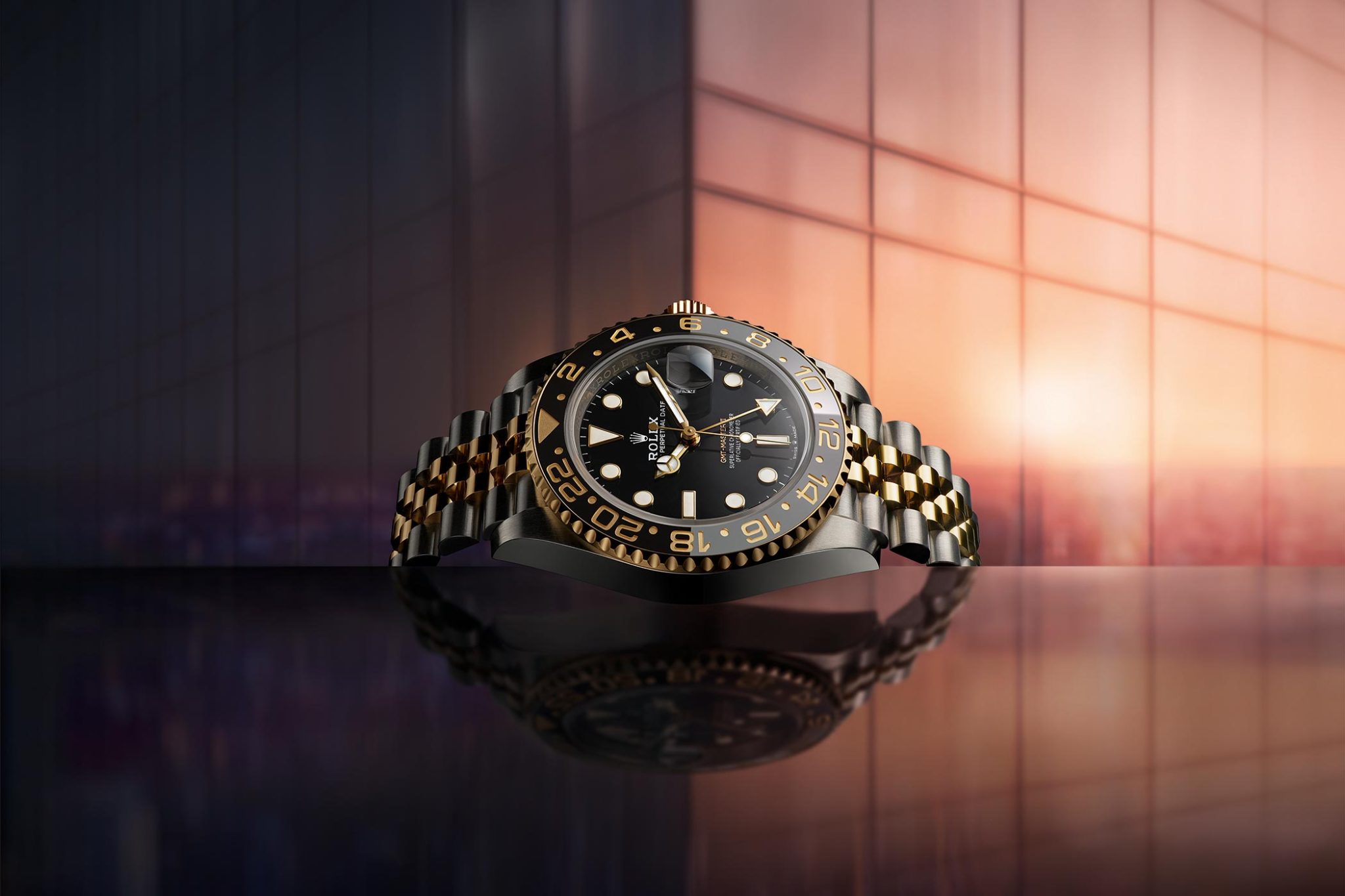
Credit © Rolex/JVA Studio
The new Reference 126718 GRNR is made of solid 18-carat yellow gold. The two-tone Cerachrom dial with 24-hour graduation is made of black ceramic. The recessed graduations and numerals are coated with a thin layer of yellow gold using a PVD process.
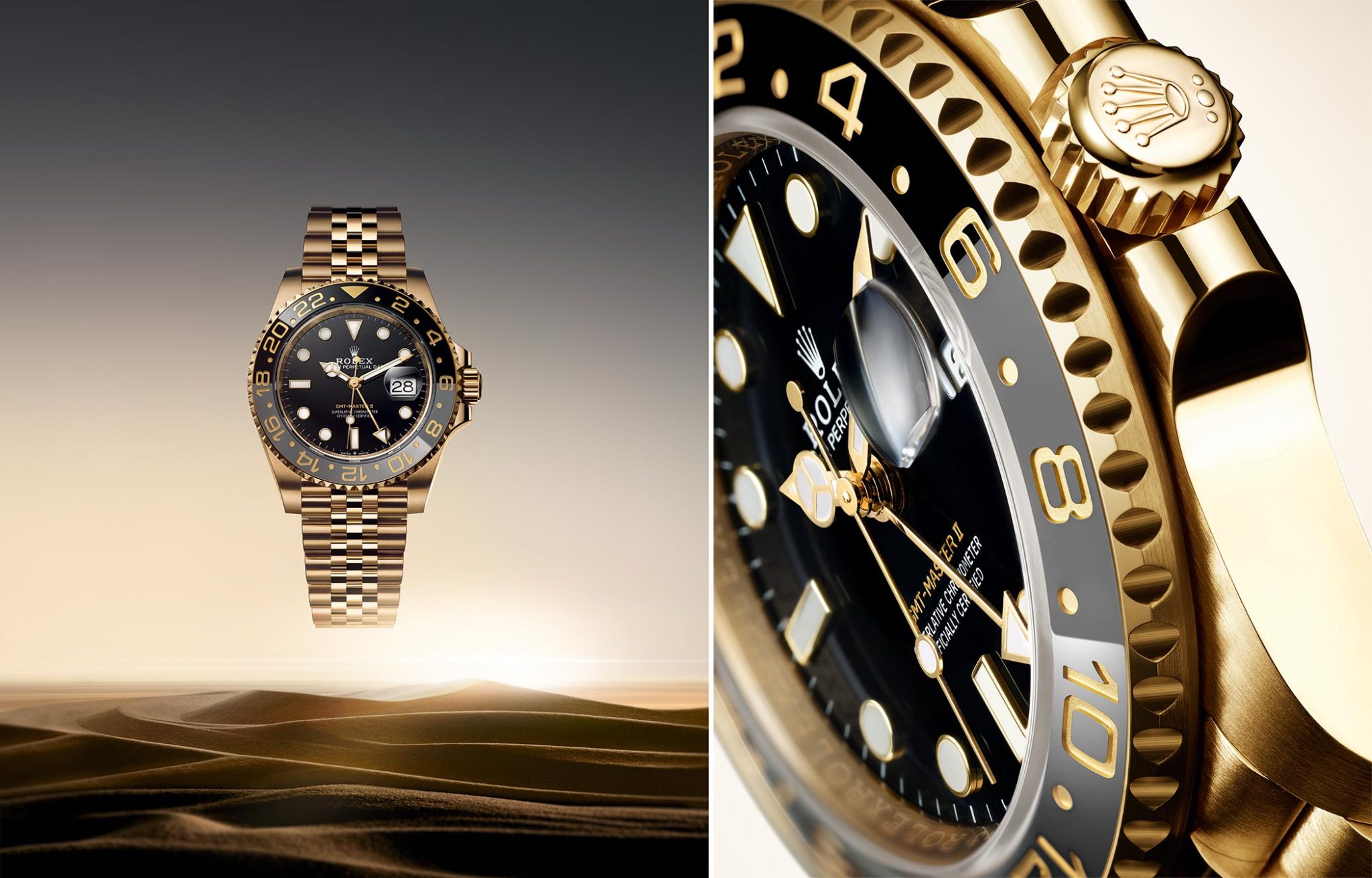
Credit © Rolex/JVA Studio & Rolex/Ulysse Frechelin
The second novelty, Reference 126713 GRNR consists of Rolex ‘Rolesor yellow’, a combination of yellow gold and stainless steel Oystersteel. Rolex patented the name Rolesor as early as 1933. On the new GMT-Master II in Rolesor yellow, the bezel, winding crown and the central elements of the bracelet are made in yellow gold. The center part, caseback and outer elements of the bracelet, on the other hand, are made of stainless-steel Oystersteel.
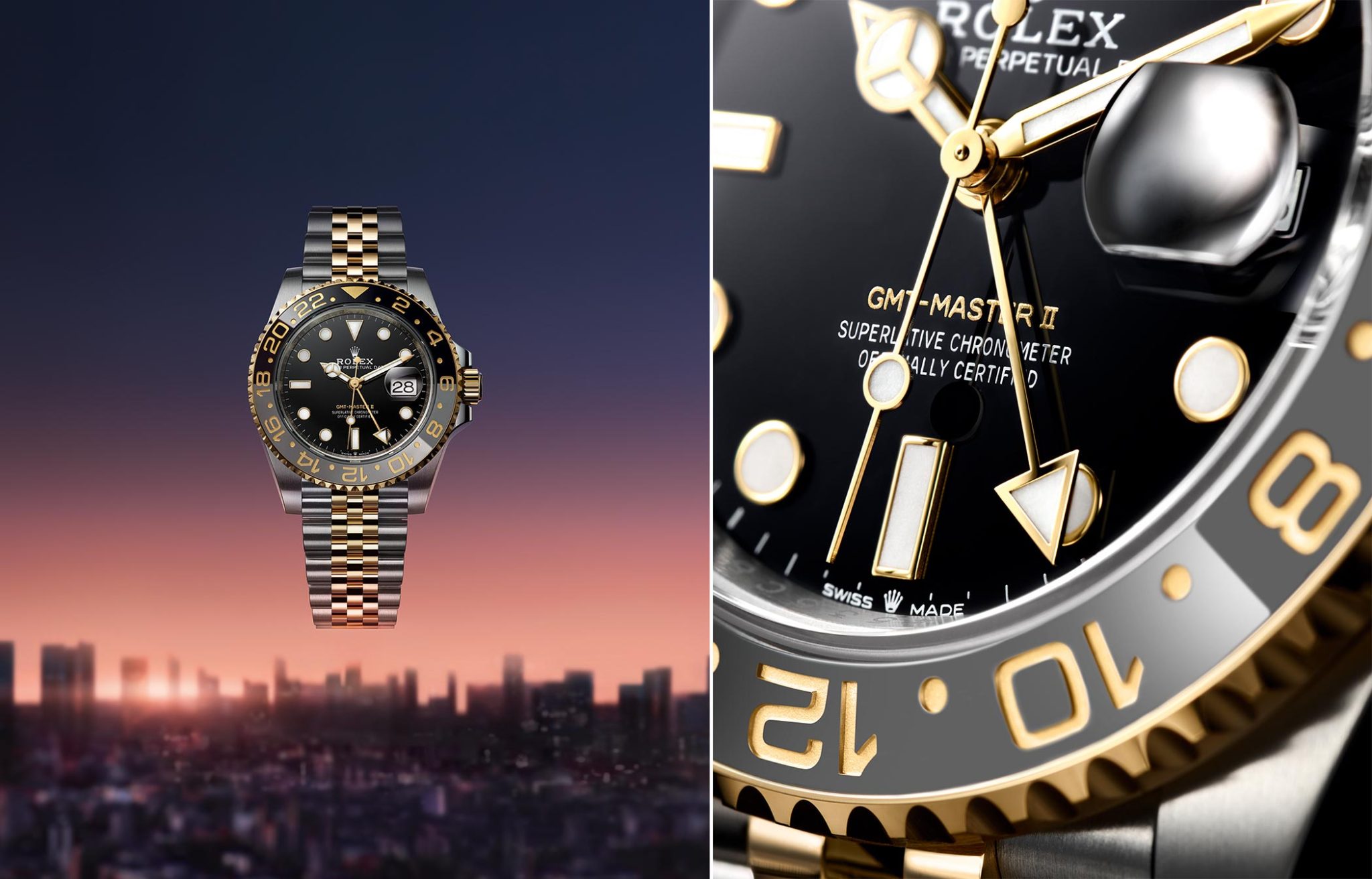
Credit © Rolex/JVA Studio & Rolex/Ulysse Frechelin
A Jubilee bracelet for the GMT-Master II
For the first time, the GMT-Master II is worn on a Jubilee bracelet. The five-piece link bracelet was introduced in 1945 for the Oyster Perpetual Datejust. In the new version, the bracelet is equipped with an Oysterlock safety folding clasp that prevents accidental opening. The Easyslink extension developed by Rolex allows the bracelet to be extended by approximately 5 mm.
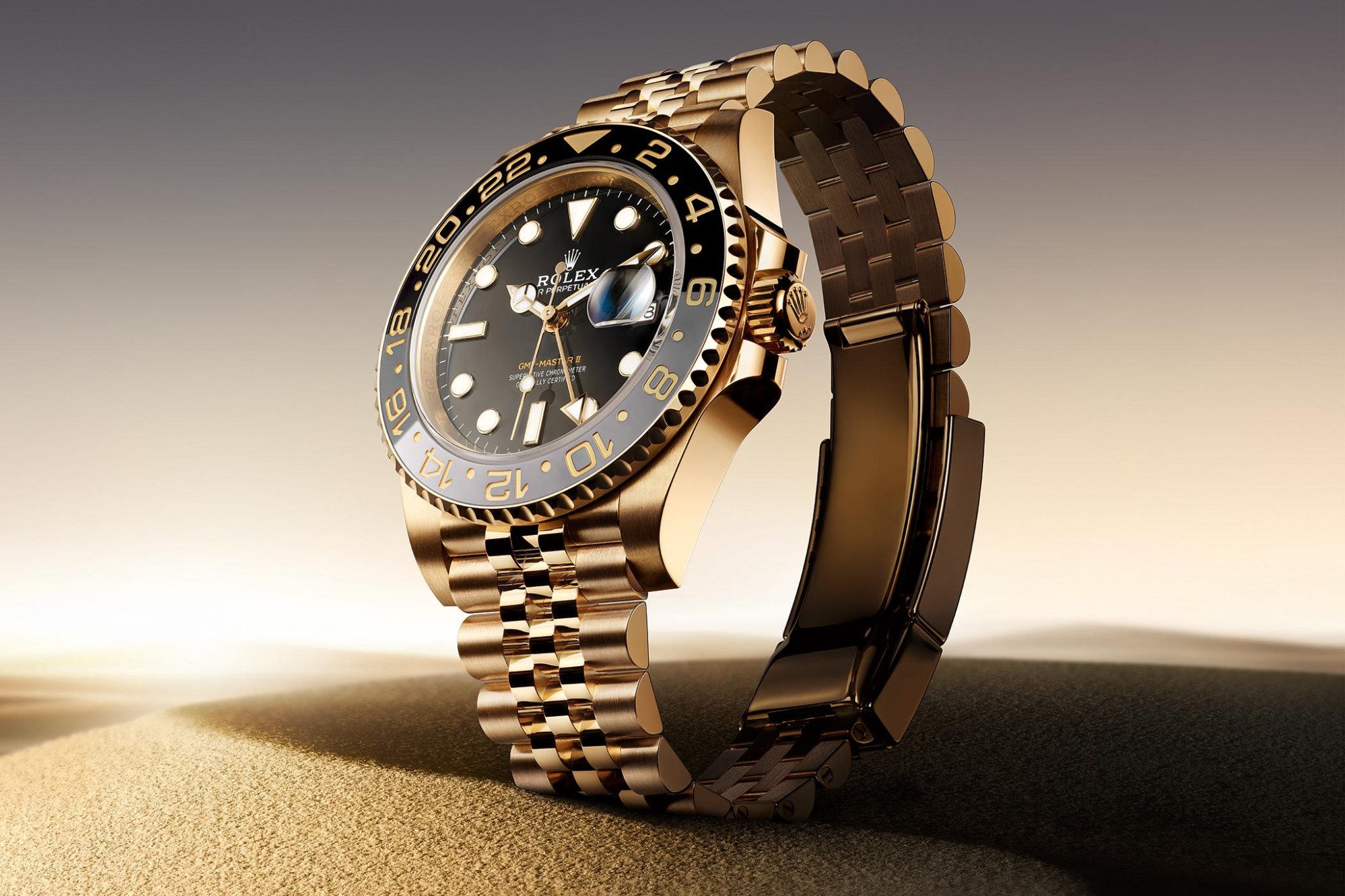
Credit © Rolex/JVA Studio
The new GMT-Master II models run on the familiar and reliable automatic calibre 3285 with 70-hour power reserve, which was first introduced in this collection in 2018. The GMT-Master II in Rolesor yellow (Reference 126713 GRNR) costs 16,150 euros. The yellow gold version (Reference 126718 GRNR) costs 38,200 euros.
Yacht-Master 42
When Rolex introduced a watch made of titanium with the Deepsea Challenge at the end of last year, there has been no stop to the fierce speculation as to whether – and when – Rolex would integrate the material into its core collection. After all, the Deepsea Challenge, with its 50 mm diameter and water resistance to nearly 11,000 meters, is more of a concept watch than a truly wearable one.
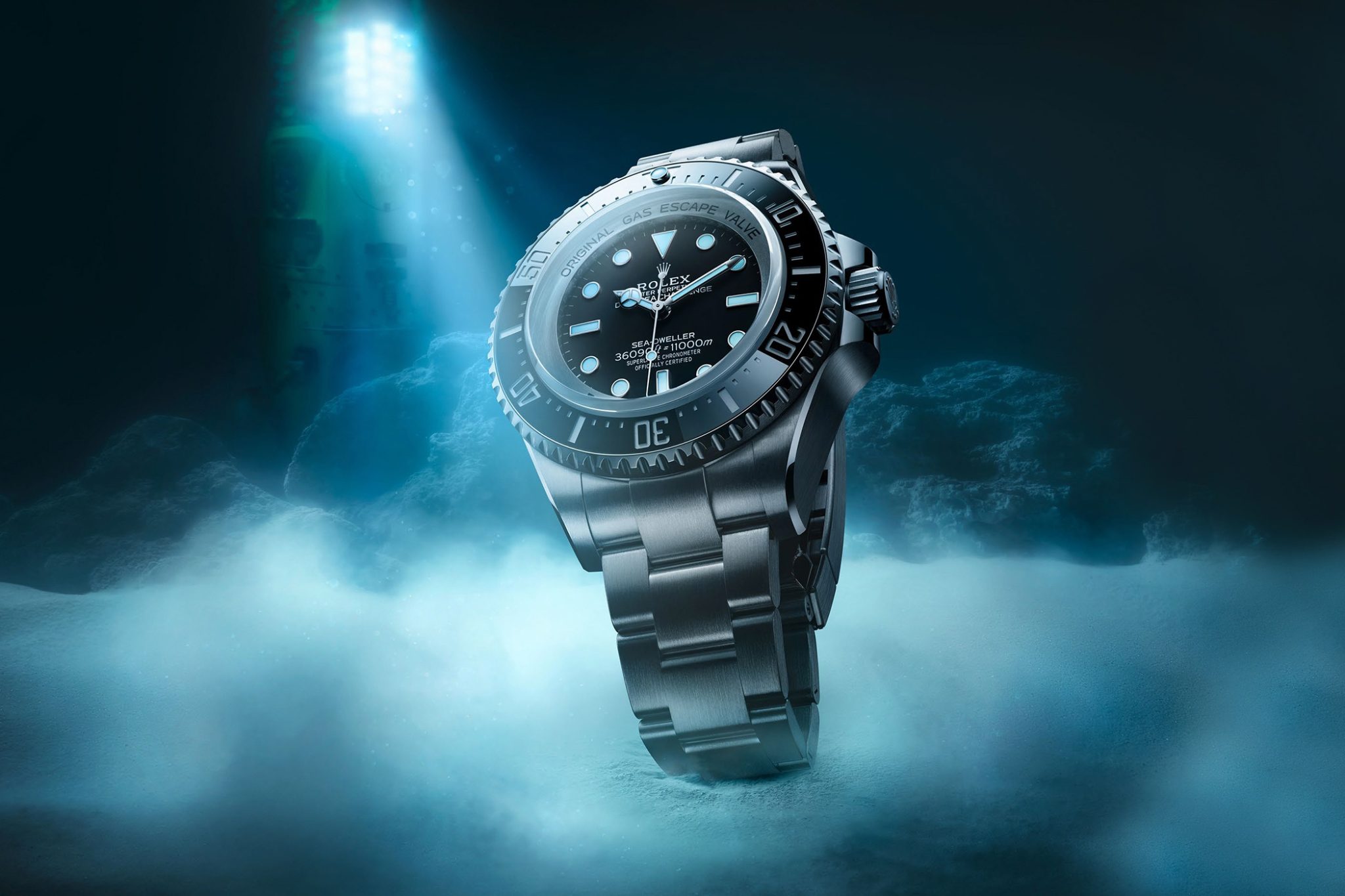
Rolex Deepsea Challenge
But now Rolex has taken the plunge and is introducing its Yacht-Master 42 in titanium; a bold move for a rather conservative company in terms of using classic materials. And we wouldn’t be at Rolex if it wasn’t a titanium alloy that would meet Rolex’s high standards. Titanium RLX is a Grade 5 titanium alloy specially chosen by Rolex, which can be machined so that its finish, whether polished or satin-brushed, can be done according to Rolex’s strict criteria.
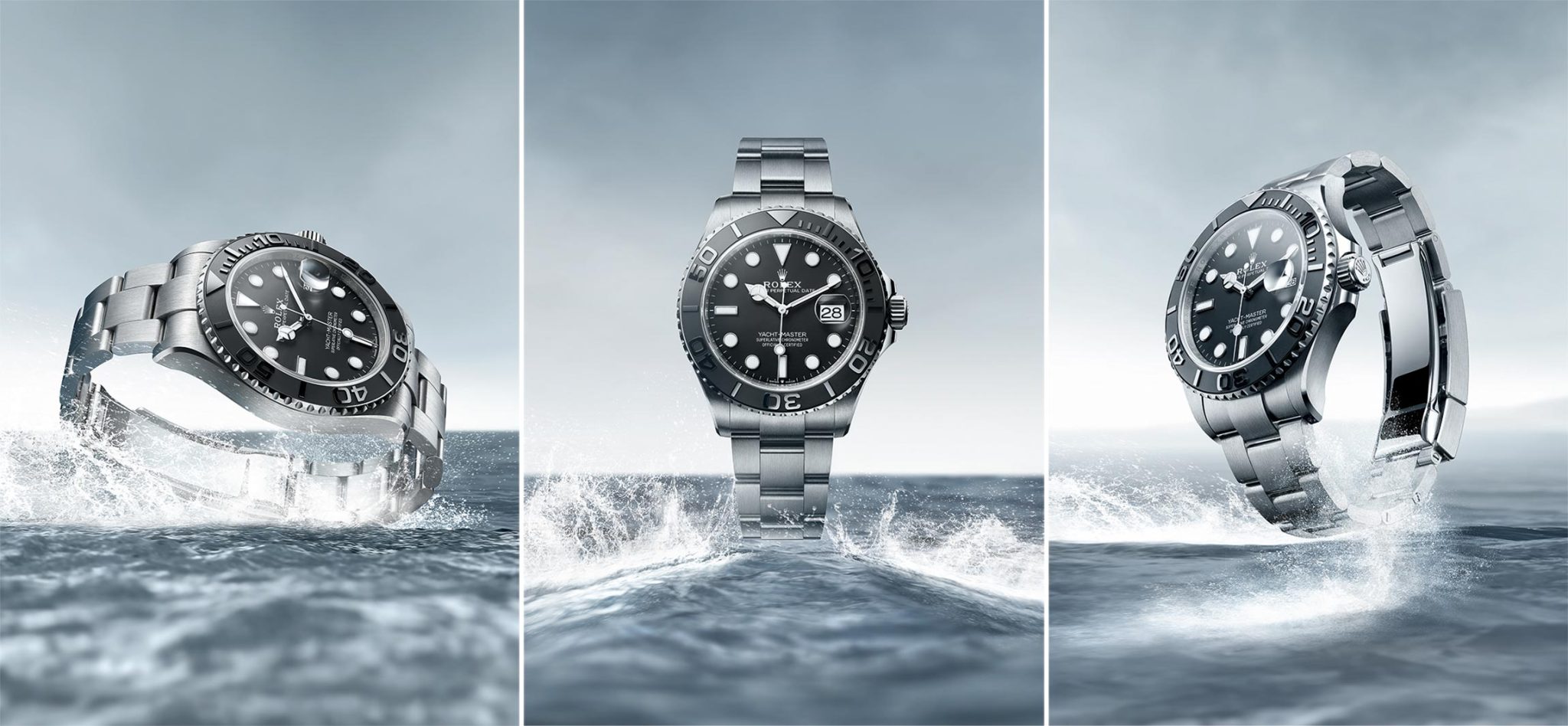
Credit © Rolex/JVA Studio
Only the chamfered top edges of the middle case lugs and the crown guard are mirror polished. The edges of the middle case sides and the bracelet elements are completely satin-finished. The Cerachrom dial is made of matte black ceramic. Inside runs the calibre 3235, which was introduced in 2015 and first used on the Yacht-Master II in 2019. It offers a power reserve of 70 hours. Price: 13,800 euros.
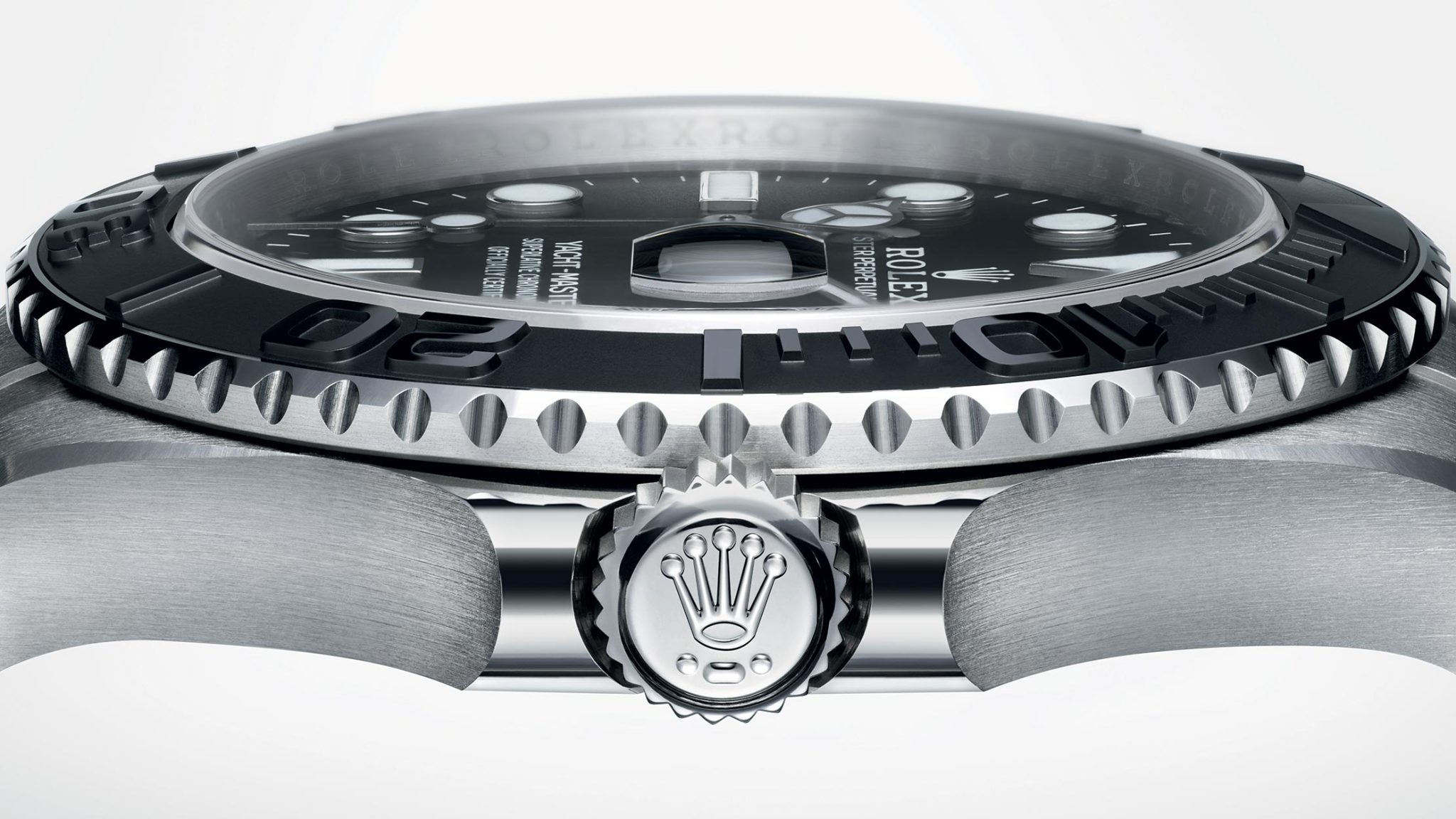
Perpetual 1908
A few days ago, a recently issued application from Rolex for a new trademark called ‘Perpetual 1908’ was already circulating on the web (as Philipp Stahl of Rolex Passion Report reported). Now we know what this is all about. Rolex is introducing a new product line called the ‘Perpetual Collection’ – its first model is the charming Perpetual 1908, and the name again refers to the date when the Rolex Trademark was first registered in Switzerland.
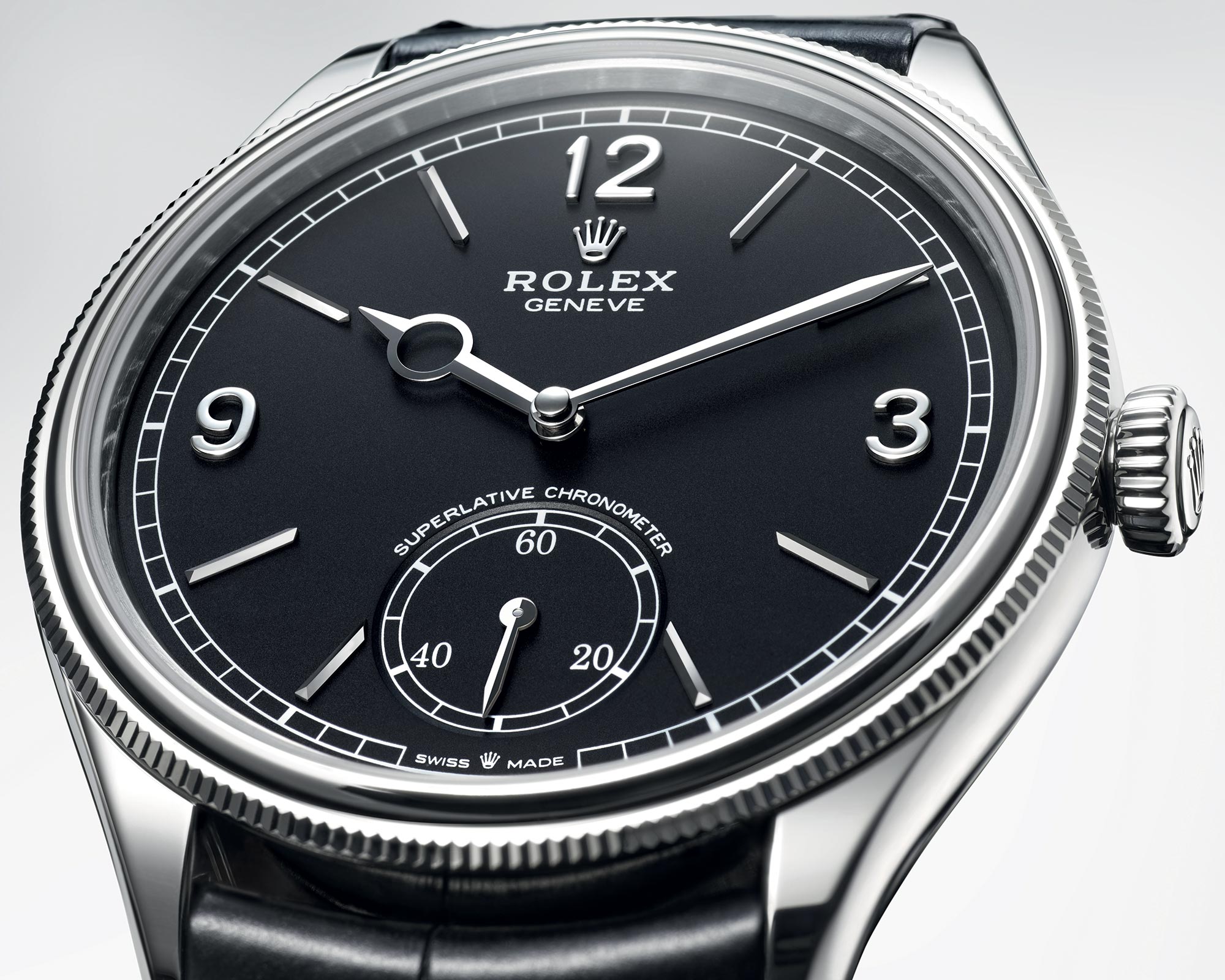
Credit © Rolex/JVA Studio
All those (including me) who have missed the Cellini timepieces in recent years will be very pleased with Rolex’s decision to introduce a new dresswatch to their portfolio. The 1908 looks amazingly similar to the Cellini line, especially the case with the domed and finely fluted bezel. A big deal for a company like Rolex, who aren’t exactly known for regularly launching new product lines. With the start of this new era, the Cellini is also disappearing from Rolex’s product catalogs.
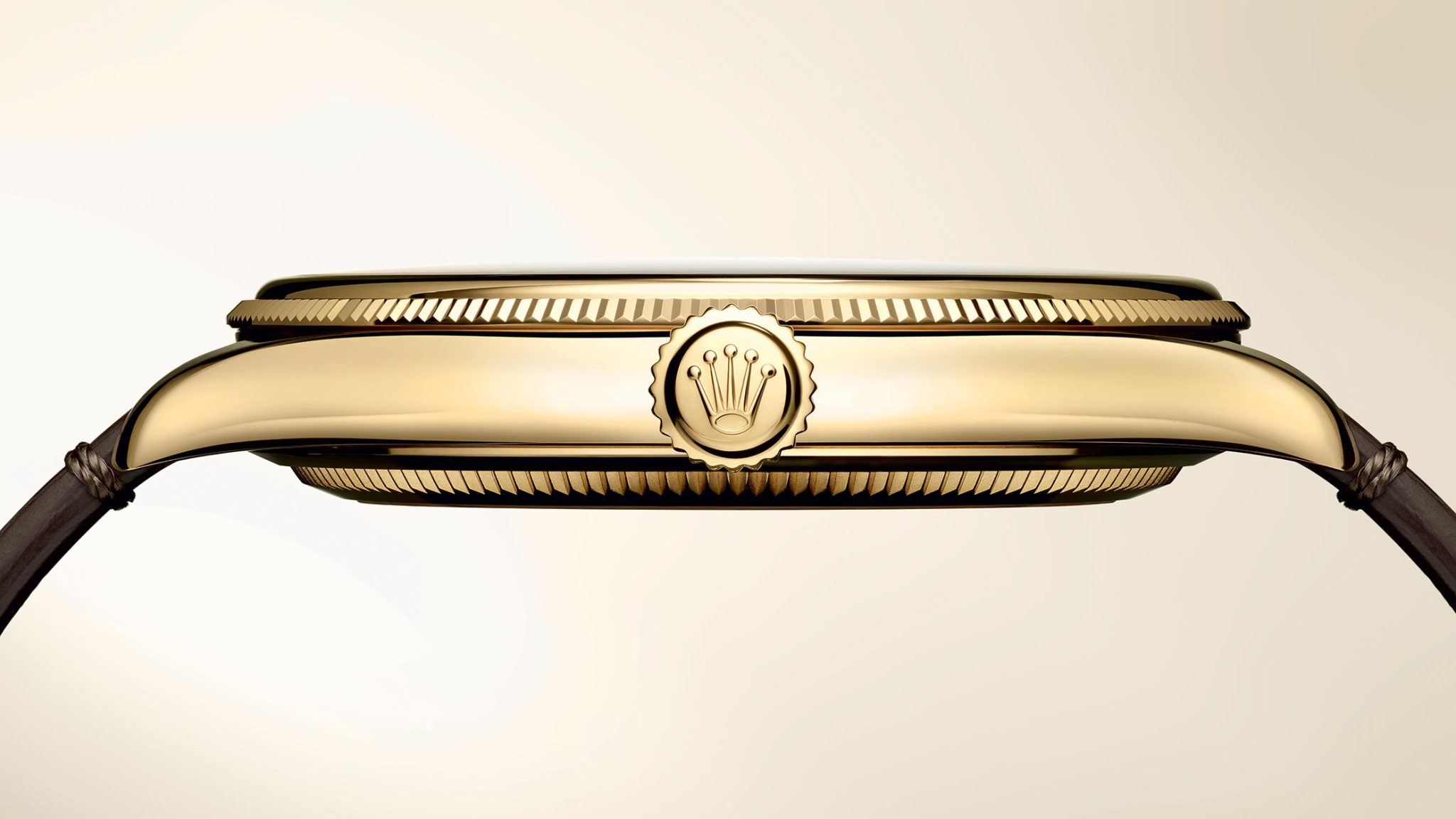
Credit © Rolex/JVA Studio
Four versions to kick-off the new collection
The 1908 comes in four new editions: in a 39mm yellow or white gold case, each with a black or white dial. The curve of the lugs is highlighted thanks to a gentle chamfering on their top edges. The bezel consists of a finely fluted lower part and a domed upper part. The dial is kept classically simple, with Arabic numerals at 3,9 and 12 o’clock and faceted indexes. At the 6 o’clock position there is a small seconds, with the words ‘Superlative Chronometer’ above it in an arc shape. The hour hand has a lollipop-like circle tip, while the minute hand is shaped like a two-edged sword.
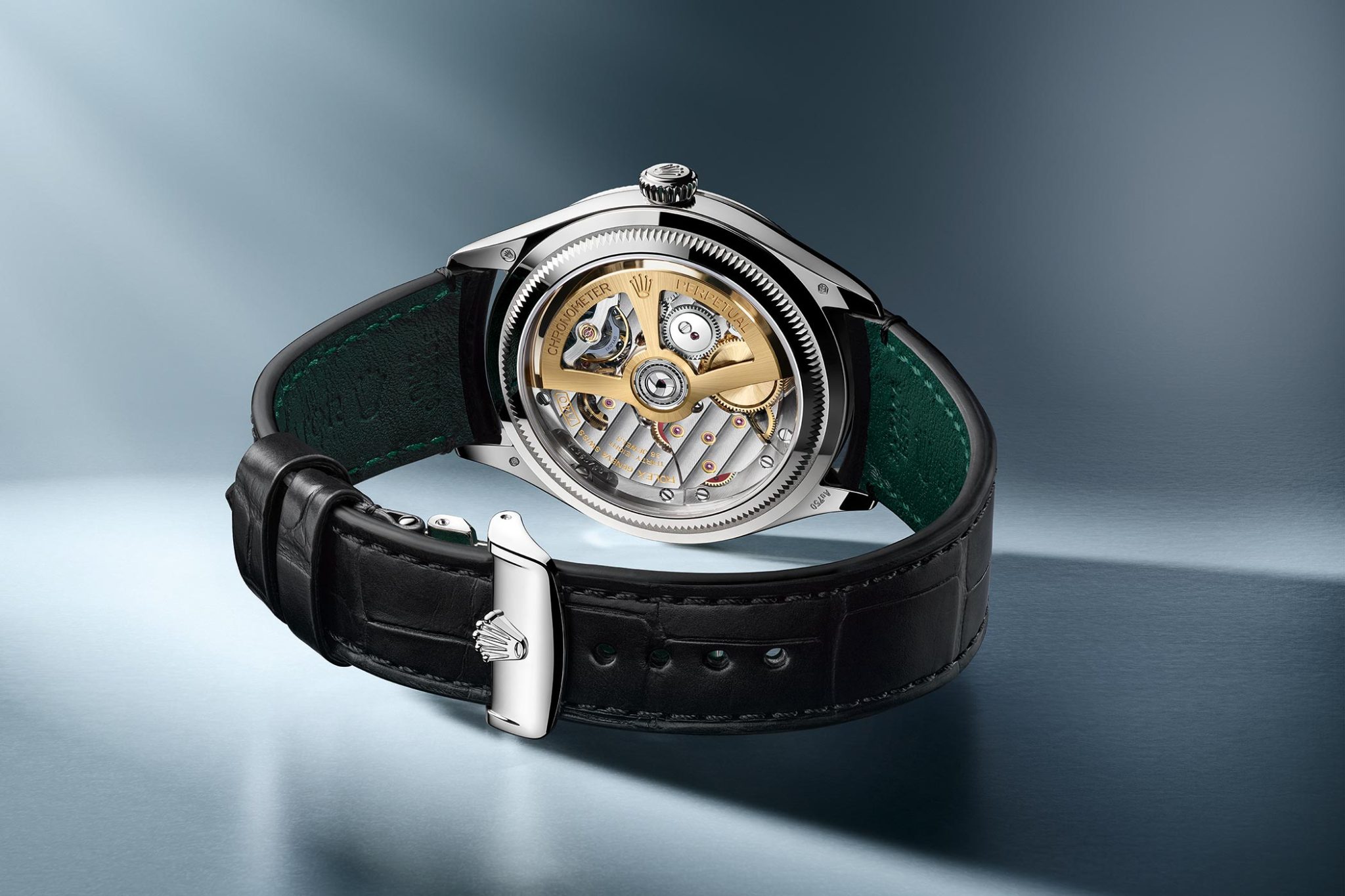
Inside runs the state-of-the-art calibre 7140, with patented Chronergy escapement and a Rolex-made Syloxi silicon hairspring, whose patented geometry ensures regular running in all positions. As with the new calibre 4131, the 7140 of the 1908 features an cut-out oscillating weight in 18-carat yellow gold and an optimised ball bearing. The power reserve is 66 hours. The two yellow gold versions cost 21,600 euros. In white gold, the watch costs 22,900 euros.
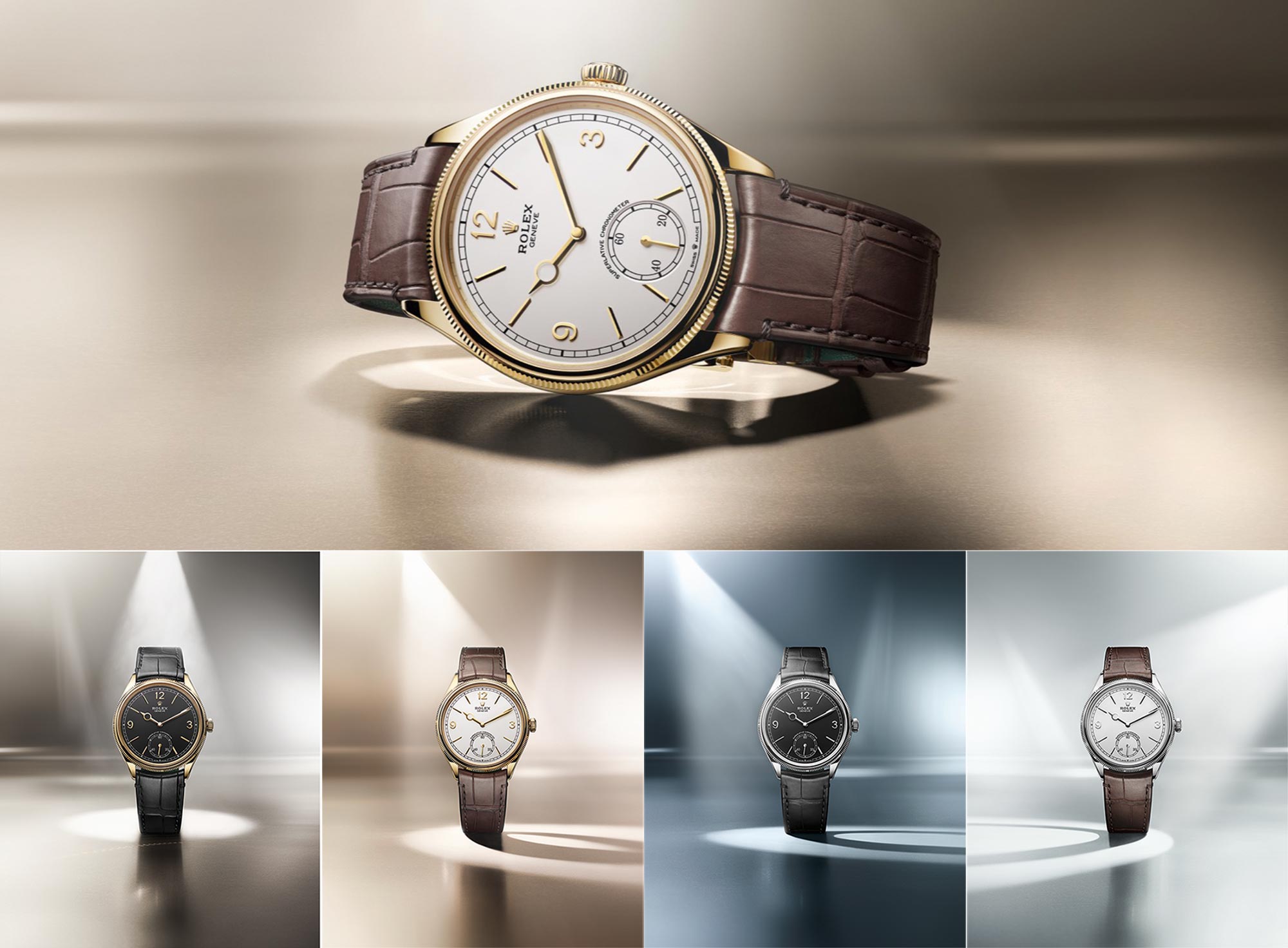
Credit © Rolex/JVA Studio

